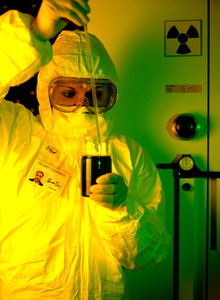Results of a study, reported by Dr Ravi Juluru and co-authors at the American Epilepsy Society’s 66th Annual Meeting, held in San Diego, USA on 30 November–4 December 2012, shows that generic slow-release drugs for seizure disorders are ‘equivalent’ to their brand-name counterparts [1].
The study evaluated generic modified-release formulations of the antiepileptic drugs carbamazepine, phenytoin sodium, divalproex sodium and levetiracetam. Bioequivalence data from 53 studies submitted to FDA for 25 generic drugs, under both fasting and fed conditions, was included in the review.
Data from 1,570 patients showed that the 90% confidence intervals (CIs) of the generic/brand-name ratios for maximal concentrations (Cmax) and total drug exposure over time (area under the curve, AUC), differed by < 15% in 77.4% and 86.8% of the bioequivalence studies, respectively. Differences of 15% to 25% in the upper or lower boundaries of the 90% CI for Cmax and AUC from the brand-name version were seen in 22.6% and 13.2% of generics products, respectively. All modified-release antiepileptic drugs products surveyed were well within FDA’s bioequivalence acceptance limits of 80% to 125% (90% CIs).
The authors concluded that the generics provided total and peak drug delivery similar to that of the brand-name products, ensuring therapeutic equivalence. Generics were also ‘bioequivalent’ to the corresponding brand-name formulations despite differences in excipients and release mechanisms.
While FDA’s bioequivalence boundary of 80% to 125% may be acceptable for the treatment of some conditions such as cardiovascular disease, when it comes to antiepileptic drugs, which have a narrow therapeutic range; such a difference in plasma concentration could, in theory, cause over- or under-dosing resulting in toxicity or treatment failure [2]. If levels of active ingredient in the blood in a given patient increase by 15%, adverse effects may result, whereas a 15% decrease may trigger onset of seizures. It is for this reason that in the past some have argued that switching from brand-name antiepileptics to generic versions might result in increased risk of therapeutic failure or adverse reactions [3]. However, even individual tablets of the same medication can produce as much as a 40% difference in the amount of active ingredient absorbed by the patient [2].
Dr Juluru and co-authors noted that this comparison of bioequivalence measurements obtained in the pivotal studies supporting the FDA approval of generic modified-release antiepileptic drugs suggests that patients can switch from brand-name to generics formulations with little or no changes in drug plasma concentrations and thus no apparent compromise in the safety and efficacy.
Editor’s comment
It should be noted that comparative bioavailability studies do not prove ‘bioequivalence’. They merely find or fail to find statistically significant differences in drug exposure with a given degree of statistical probability; usually only in a small number of normal healthy volunteers, and often without looking at food effects.
Related article
Switching from a brand-name antiepileptic drug to a generic is not associated with a higher risk of seizures
Benefits and risks of generic substitution
References
1. Juluru RK, Davit BM, Chaurasia CS, Chang YT, Krauss GL. Bioequivalence studies among generic and brand-name modified-release antiepileptic drugs supports therapeutic equivalence and generic substitution. American Epilepsy Society’s Annual Meeting, San Diego, CA, USA, 30 November–4 December 2012. Abstract 1.224, 2012.
2. GaBI Online - Generics and Biosimilars Initiative. Alleviating concerns around generic antiepileptic medications [www.gabionline.net]. Mol, Belgium: Pro Pharma Communications International; [cited 2013 Jan 24]. Available from: www.gabionline.net/Generics/Research/Alleviating-concerns-around-generic-antiepileptic-medications
3. GaBI Online - Generics and Biosimilars Initiative. Bioequivalence testing for generics [www.gabionline.net]. Mol, Belgium: Pro Pharma Communications International; [cited 2013 Jan 24]. Available from: www.gabionline.net/Generics/Research/Bioequivalence-testing-for-generics
Permission granted to reproduce for personal and non-commercial use only. All other reproduction, copy or reprinting of all or part of any ‘Content’ found on this website is strictly prohibited without the prior consent of the publisher. Contact the publisher to obtain permission before redistributing.
Copyright – Unless otherwise stated all contents of this website are © 2013 Pro Pharma Communications International. All Rights Reserved.
Source: American Epilepsy Society








 0
0











Post your comment